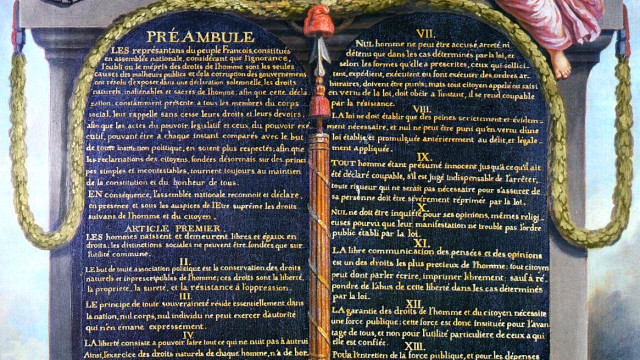“Man is born free, and everywhere he is in chains” as Rousseau put it in his opus magnum tilted ‘Social Contract’. Although the very definition of freedom has never been agreed upon, various great philosophers tried to formulate it from time to time. Accordingly, for Thomas Hobbes (Leviathan, Ch. XXI) “a free man is he that in those things which by his strength and wit he is able to do is not hindered to do what he hath the will to do” whereas for John Locke (‘Two Treaties on Government’) a ‘persons have a right or liberty to follow their own will in all things that the law has not prohibited and not be subject to the inconstant, uncertain, unknown, and arbitrary wills of others.” John Stuart Mill (‘On liberty’) first distinguished between positive and negative liberty. The concept was developed by 20th century thinker Isaiah Berlin (‘Two Concepts of Liberty’) whereby the former is an actual right to act whereas the latter symbolises a freedom from any external restrains.
Man was born free into the state of nature that, for Hobbes, is immersed in “the war of all against all” (Latin: Bellum omnium contra omnes). An individual was driven by his instinct of self-preservation and his inclination towards the domination over others at the same time. People had no other way but to delegate powers to the sovereign that can enforce order and therefore provide security. However, for Locke, the concept of social contract was based on the idea that people reached the social agreement in order to stabilise the rules for the allocation of the property holdings. Thus the power of the sovereign should be strictly limited and its degree is smaller than in Hobbes’ view. The concept of the social contract in the heart of the liberal theory of state.
Man was not only born free but was born with certain range of rights that cannot be deprived of regardless of the circumstances. According to Locke, there are three main natural rights: to life, to liberty and to property. As these rights are inalienable and are enjoyed by every single individual only the social contract might legitimise the existence of a state from liberal point of view. A person cannot be governed without their consent.
A state operates to secure an individuals and their property, accordingly, its powers must be strictly limited. For classical liberals the state must be of ‘night-watchman’ nature. It should interfere neither with the economy nor with the lives of its citizens. The state should be based on the concept of ‘non-aggression principle’. The idea expressly formed by J.S. Mill and developed afterwards by other liberal thinker. However, The Declaration of the Rights of Man and of the Citizen proclaimed in 1789 stipulated that ‘Liberty consists in the freedom to do everything which injures no one else; hence the exercise of the natural rights of each man has no limits except those which assure to the other members of the society the enjoyment of the same rights.’ Such understanding is the core of the liberal approach to rights and duties of an individual within the society. It ensures that the state does not attempt to control every aspect of citizens’ lives and limits the powers of the government.
Individual’s liberty is not limited to the conscious only but it also, or mainly, secures freedom to exchange of goods. A free market is an inextricable element of the classical liberal philosophy. Economy should operate according to the principle of Laissez-faire. Gaspard Toufick (‘A Political Economy of Lebanon 1948–2002: The Limits of Laissez-faire. Boston: Brill, 2004’) defines it as ‘an economic environment in which transactions between private parties are free from government restrictions, tariffs, and subsidies, with only enough regulations to protect property rights.’ Therefore, according to Adam Smith (‘The Theory of Moral Sentiments’) the free market is regulated mainly by the ‘invisible hand’ as the allocation of the goods is based on the competition between the units within the market.
A classical liberal theory of state was adopted by the Founding Fathers during the American War of Independence. The Declaration of Independence expressly stipulates that a man is to ‘pursue his own happiness’ whereas the US Constitution is based on the concept of the night-watchman state. Along with the Bill of Rights, it was the first document that secured the right of its citizens as well as rule of law and separation of powers within the Government.
For classical liberals the liberty that an individual enjoys is not a privilege which could be taken away. The liberty is not given to the individual by the state or any other person. It is inherent to the man as he was born free. If people are born free and possess certain rights they can be restricted by the state only upon an agreement. The concept of social contract gives legitimacy to the state. The state is secondary to the individual’s liberty. It is the individual that delegated its powers by limiting its liberty to the state therefore the state must serve this individual. Moreover, it cannot generate any new powers by depriving people of a bigger portion of their freedom as only powers it has, are those voluntarily delegated to it. Similarly, the state must fulfil the obligation that has been imposed on it the moment people agreed to its existence. Thus the state cannot take any more responsibilities than it was primarily designed to. That is why classical liberals oppose any welfare programs and redistribution of goods.

